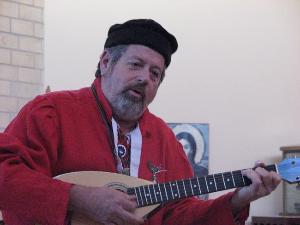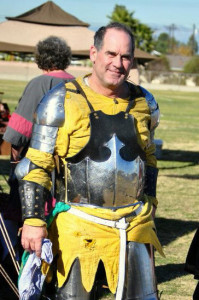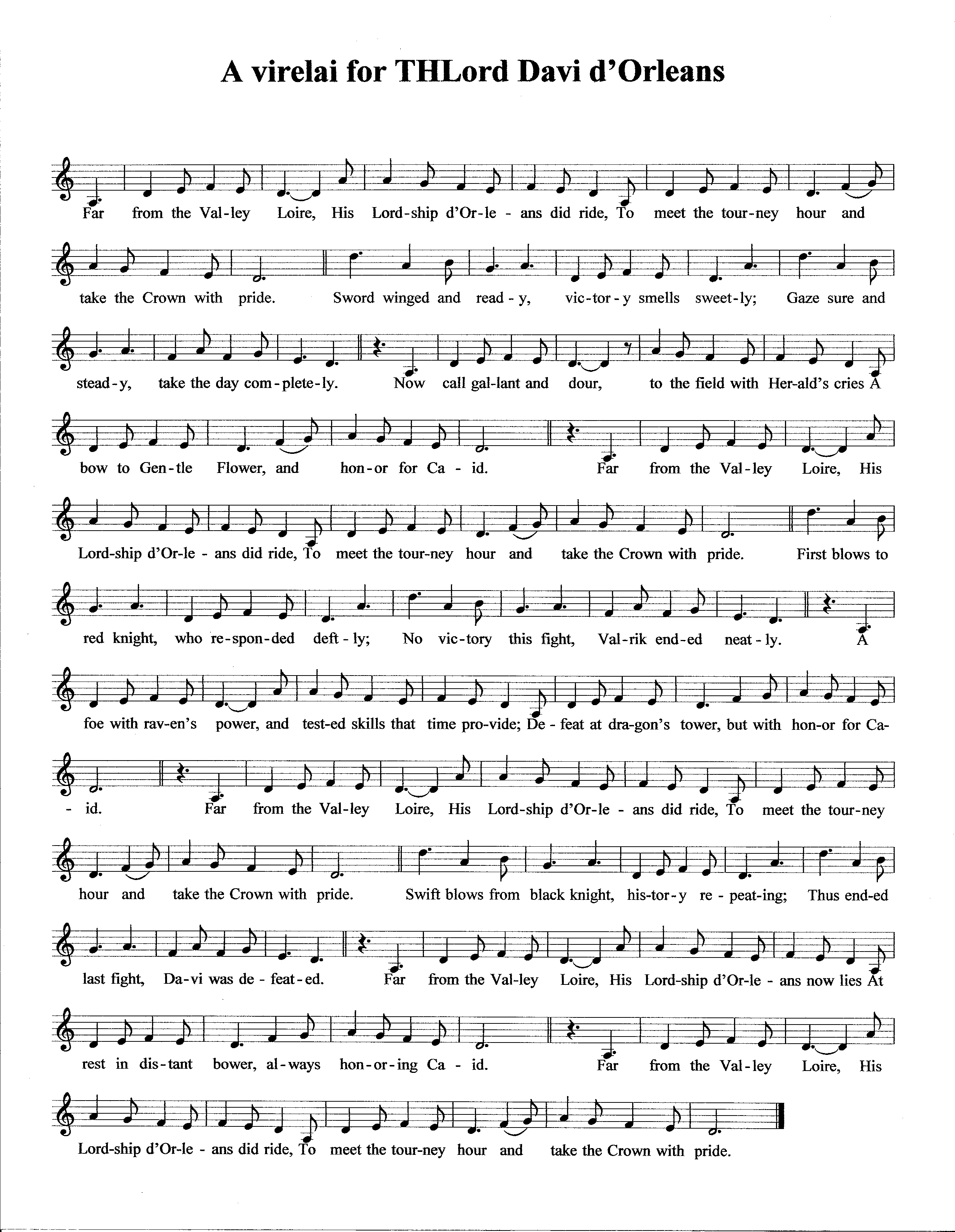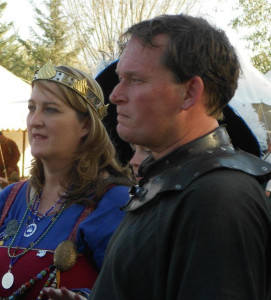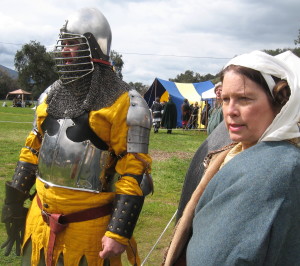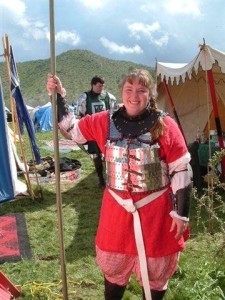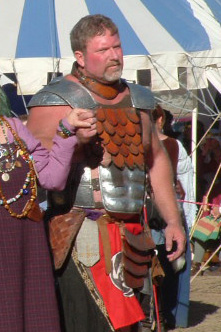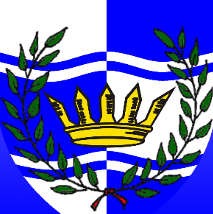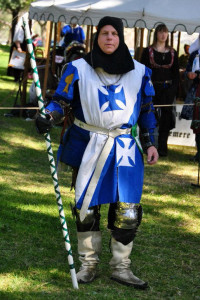In 2006, my lord husband, Domhnall, defeated me in the competition for the 5th Lyon Bard for the Barony of Lyondemere. I like to think it was because of the following piece I wrote for him to sing! He did do a wonderful job, as always.
————-<>————-
The following original text is sung to the music of the 16th century composition,
“Blow thy horn, hunter”, by William Cornysh (d. 1582)
Bawdy Songs Fit to embarrass your Mother, by Master Samuel Piper, O.L.
————-<>————-
From the West Kingdom and in the thirteenth year
Caid was born and one brought forth to guard Lyondemere
Conrad von Regensburg, First Baron of Lyondemere.
And then a Baroness to sit as vassal of the throne
So that the Founding Baron knight would never sit alone.
Megwyn of Glendwry, First Baroness of Lyondemere.
Two Pelicans then called to serve and to protect this land
One Lady Laurel and her knight would then serve hand in hand
Colin Wynthorpe and Xena Baxter Wynthorpe.
And then one brave young fighter and his lady fair
Added numbers to these lands while watching it with care
Gilbert Rhys MacLachlan and Morann Will Owen.
Two Laurels then to hold these lands and cover them with art
One to be a gentle knight and one to hold his heart
Jamal Damien Marcus and Eowyn Amberdrake.
The next in line an honored bard and friend to many kings
And at his side one Mistress, kind, who loves to hear him sing
Thomas Bordeaux and Angelina Nicollette de Beaumont.
Barons of Lyondemere and Baronesses of Lyondemere.

